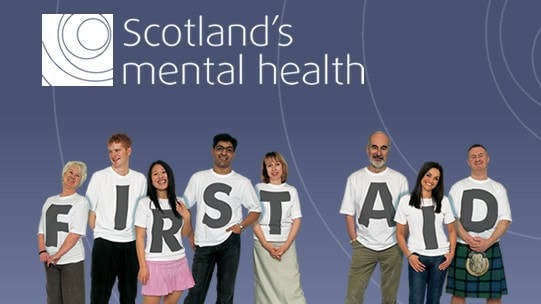
Mental Health First Aid
Our network of Mental Health First Aiders is here to provide a listening ear and create a safe place to discuss mental health concerns.
If you are in crisis and need urgent help, please call the emergency services on 999.
The University are committed to supporting healthy working lives and staff. You can find out about the wide range of support offered by the University on these pages.
For further advice and support on healthy living, including mental wellbeing, eating well, alcohol and drug use, gambling and online addiction and more please visit the NHS Inform pages .